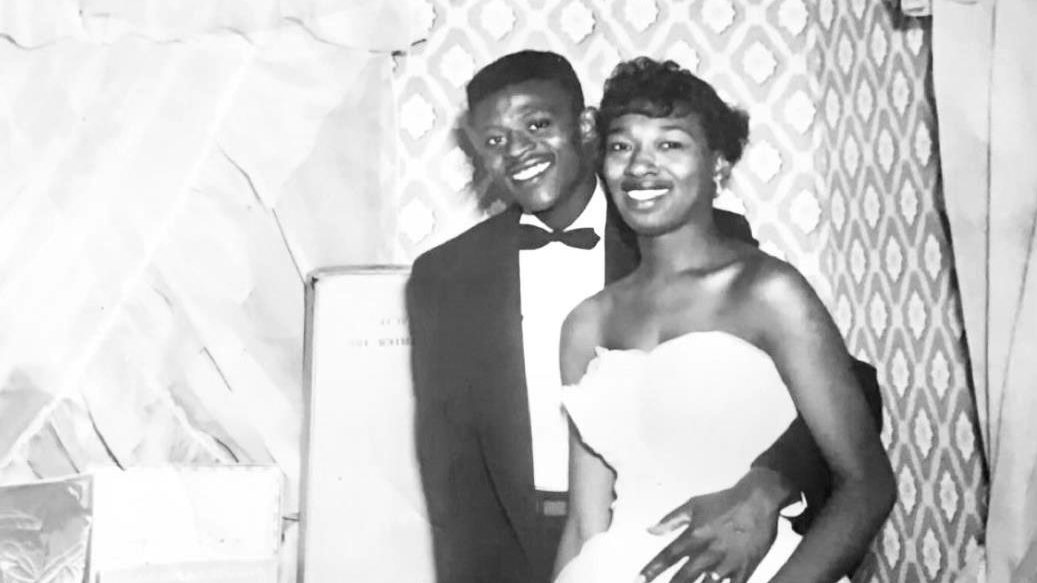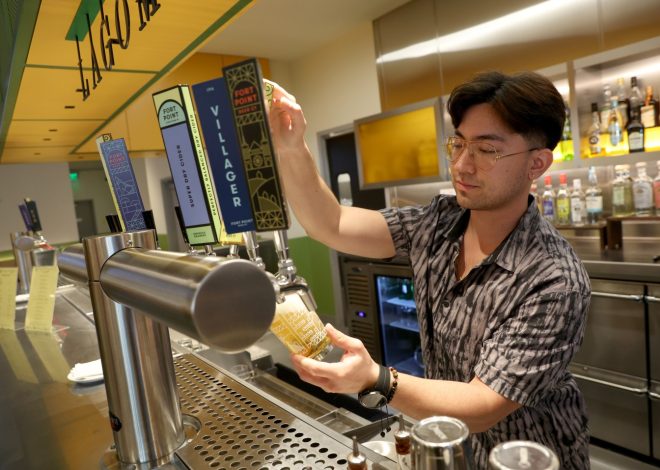
Jury denies damages for family of man buried in wrong grave at California cemetery
A San Diego jury on Wednesday ruled against awarding any damages to a family who sued Greenwood Memorial Park and Mortuary after the cemetery buried their father in the wrong grave, a mistake that was not discovered for more than two decades.
Sidney Cooper Jr., the son of a businessman who was affectionately known as the “Mayor of Imperial Avenue” before his 2001 death, alleged in a lawsuit filed last year that Greenwood Memorial Park and its owners had negligently and intentionally inflicted emotional distress upon him. His attorneys argued last week that the cemetery’s former owner should pay the family tens of millions of dollars in damages.
The misplacement of Sidney Cooper Sr.’s remains for 22 years was discovered in March 2023 when cemetery workers preparing for the burial of his widow, Thelma Cooper, realized their shared plot was empty. Cooper Sr.’s remains were discovered about three months later in a nearby, unmarked burial plot, apparently the result of a map-reading error by cemetery crews.
The Superior Court jury unanimously ruled that Service Corporation International, the former owner of the cemetery in southeastern San Diego, was negligent and caused substantial harm, according to Eric Dubin, an attorney for the family. But the jury ruled that Cooper Jr. suffered no serious emotional trauma for having spent 22 years unaware that his father’s remains were not in the proper grave.
“We trusted the jury and the jury came back with a verdict that was fair and reflective of the evidence,” Toby Magarian, an attorney who represented Service Corporation International, told the Union-Tribune.
According to the family’s lawsuit and arguments at trial, Sidney and Thelma purchased their plot at Greenwood around 1992. The cemetery is just two blocks from the family’s Mountain View neighborhood home in a community the couple cared for deeply.
“He was a veteran, and he was all about the community,” daughter Lana Cooper-Jones said of her father last year, referring to the neighborhoods along Imperial Avenue, including Logan Heights, Mount Hope, Mountain View and Lincoln Park. “He loved that community — he had a house two blocks from Greenwood, on 38th and Imperial; he had a business on Imperial; he wanted to be buried on Imperial.”
When Cooper Sr. died in 2001 at 71, he was buried at the cemetery on Imperial Avenue — but not in the correct plot. Cooper Jr. alleged that part of the emotional damages he suffered arose from praying at a grave marker where his father was not actually buried.
Magarian, the attorney for Service Corporation International, warned the jury during closing arguments not to listen “to the emotional appeals” and “the outrage” from the Cooper family’s attorneys. He said the family had every right to be angry, but that the legal case was an overreach. He said the family only suffered emotional distress after it was discovered that Cooper Sr. was not in his correct burial plot, but didn’t suffer during the 22 years it thought he was there.
Dubin told the jury during his opening statement that if the cemetery made a mistake, that equated to negligence. The attorney also implied to the jurors that there was an aspect of racial injustice to the case.
Cooper Sr. was born in an all-Black town in Oklahoma that on June 19 each year would celebrate Juneteenth, a holiday marking the day in 1865 when word of the Emancipation Proclamation finally reached the final slave holdout of Galveston, Texas. Cooper Sr. continued to celebrate the holiday when he came to San Diego. Dubin told the jury that Cooper Sr. “is given credit for being the founder of Juneteenth in San Diego.”
Dubin said that was why the misplacement of the remains hurt so much. “The Coopers lived their life so well, they played by all the rules,” Dubin told the jury. “Honest, hardworking people. Gave to the community. Loved the church. Loved their family, lived for their family. Gave to others. Proud African-American family playing by all the rules … and then to still get treated so horribly in his death. That was crushing to Sidney Cooper Jr.”
Annee Della Donna, another attorney for the family, echoed Dubin during her closing argument, telling the jury that the misplacement of Cooper Sr.’s remains was especially egregious given “the history of what this country did to Blacks in unmarked graves.” She said the jurors had a chance to “right a grievous wrong” caused by Greenwood’s owners being reckless and disregarding their own policies.
“This case reveals a profound lack of compassion and responsibility,” Della Donna said. “This is a big deal, if you lose bodies. This is your only job.”
Related Articles
Man arrested with weapons outside Trump’s California rally sues sheriff over ‘assassination attempt’ comments
Catholic Archdiocese of Los Angeles agrees to $880 million settlement over sex abuse of children
Archdiocese of Los Angeles Agrees to Pay $880 Million to Settle Sex Abuse Claims
Great balls of fire! Spicy-dish lawsuit by San Jose doctor against Los Gatos restaurant set for jury trial
Google endorses California GOP Rep. Issa’s bill to reveal funders backing lawsuits
Just before the trial started, the family reached a settlement with NorthStar Memorial Group, the company that purchased Greenwood from Service Corporation International in 2016. The terms of the settlement were not disclosed. Attorneys for NorthStar had previously argued that it shouldn’t be held liable for the actions of previous ownership and that its employees “acted reasonably and diligently to correct the mistake” when it was discovered Cooper was not buried where he was supposed to be.
“We were concerned with how an all-White jury would treat this Black family in San Diego, so we settled the vast majority of the case prior to trial,” Dubin told the Union-Tribune on Wednesday. “We’re very thankful we were able to reach that settlement and not let the jury decide this entire matter. The settlement … turned out to be a fantastic move for this family in getting justice.”
Magarian, the attorney for the prior owner, told the jury that Cooper Jr. didn’t seek out any mental health assistance or therapy as is typical for someone experiencing emotional distress.


